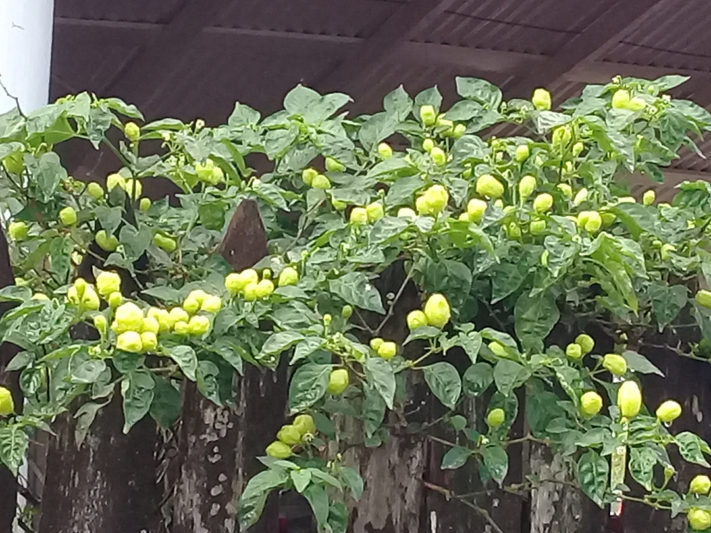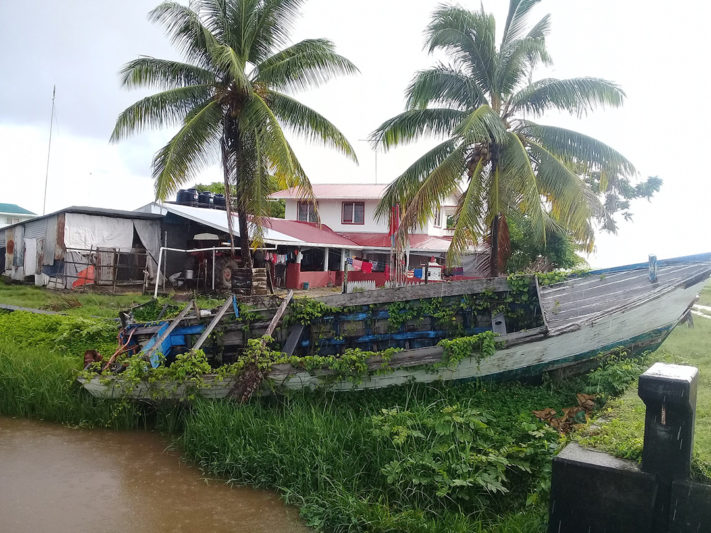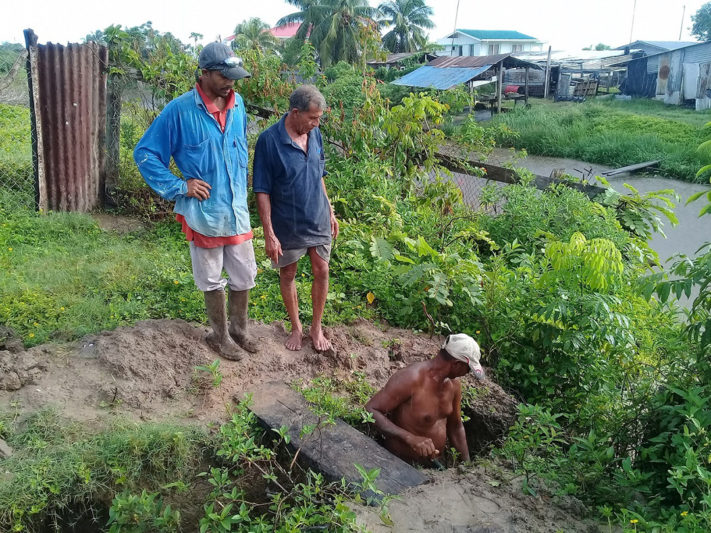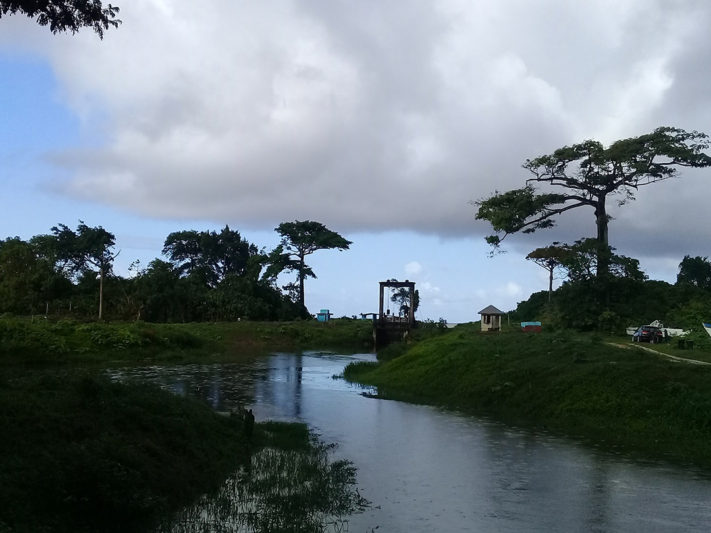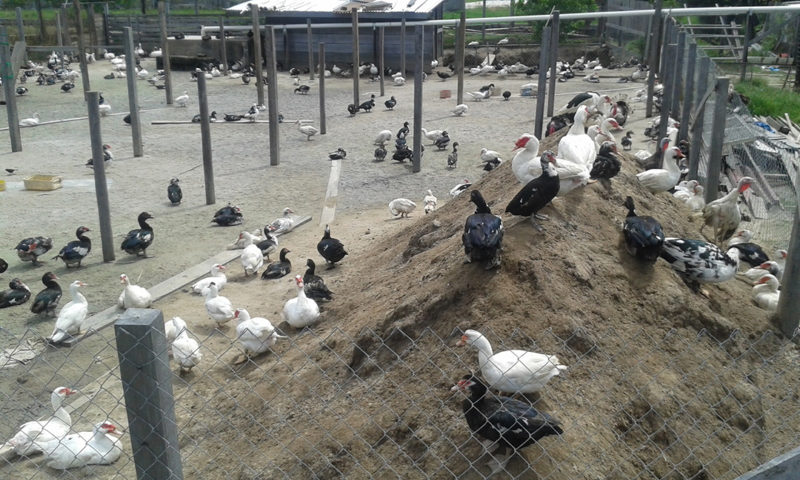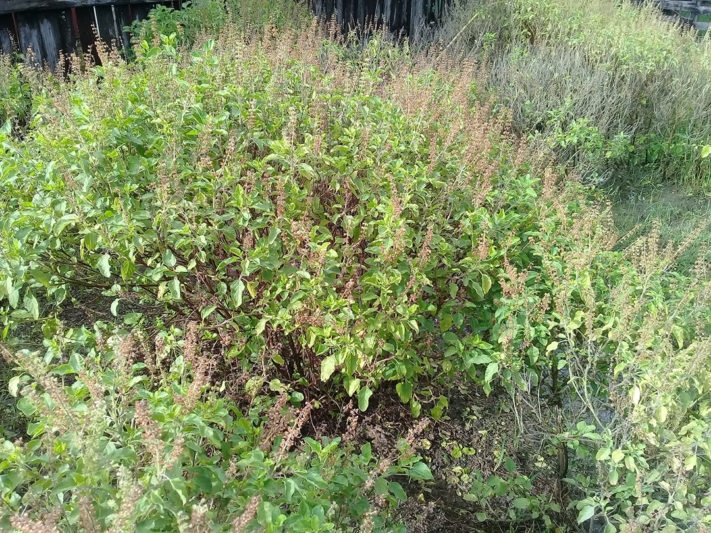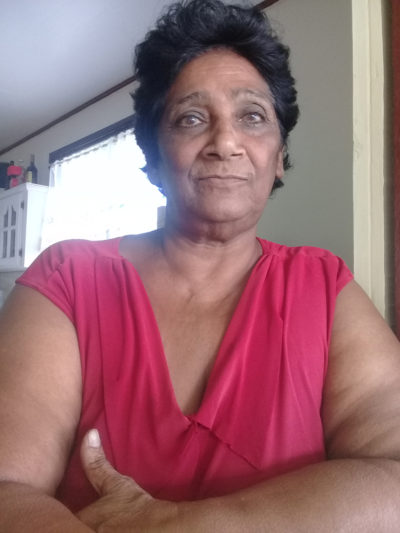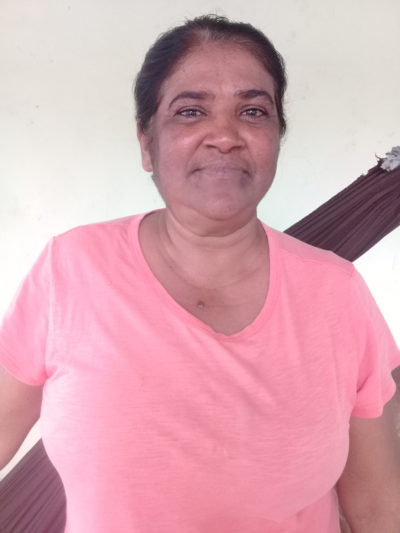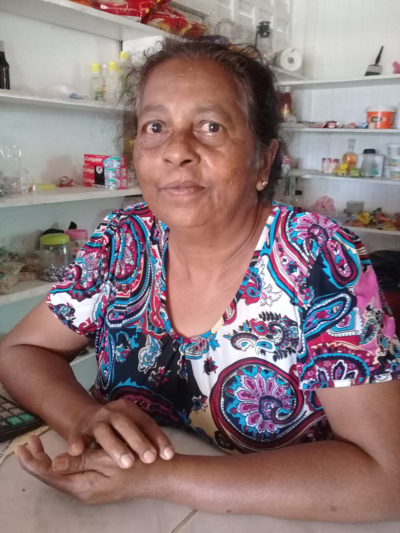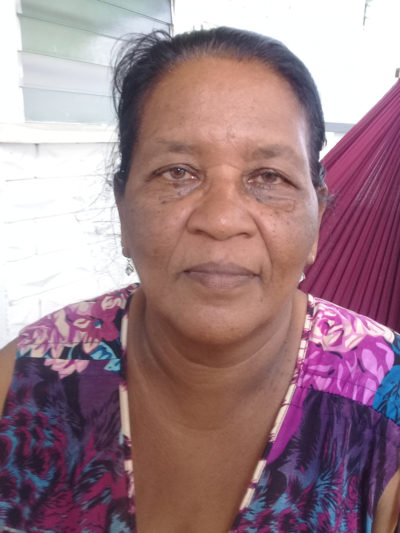Hoff Van Aurich is a sleepy little village on the Essequibo Coast situated 26 kilometres from Supenaam. The village is home to approximately 100 people, whose presence dates back to the 1800s when their fore parents arrived here on indentureship contracts.
Houses line one side of Hoff Van Aurich from where the village starts to where it ends. On the opposite side rice fields run for more than a mile.
World Beyond Georgetown arrived one torrential Tuesday, no different from the weekend that preceded it. The happy cries of birds filled the air while they bathed in the rain; some eating the yellow-black mangoes that littered the ground. Not a soul was in sight; windows were tightly shut and only half-opened kitchen doors said someone was home.
Sumintra Roopnarine looked up and out from the hammock she lay in, when I called at one such house. Her pronunciation of the village’s name sounded like ‘Hoffen Arick,’ which was later repeated by other villagers.
Her family, the Roopnarines, were the first to have settled there, she said, dating back to the 1800s when they arrived to work on the Salisbury Estate.
Roopnarine, the last of 13 children, said only she and two other siblings ever grew up, the other ten lived only for a short time before they passed on, which she strongly believes was because of the hardship and struggles her mother faced. By the time she reached 13, she had lost her father and the struggles became harder as her mother, she and her siblings laboured to put food on the table. Her brother, who sat nearby, jokingly shared that that being the period of grass knives, as there were no combines, he almost lost half his fingers. He elaborated on the cuts he received from the knives.
“Never mind long time was hard, it was sweet in its own way,” Roopnarine said. “Me mother use to send we to set sipee [seine] in the canal and sometimes by the koker mouth. We use to put chicken bran [poultry feed] inside… Later when yuh go pull up yuh sipee and you pulling it up easy; all kind of fish inside: shrimp, patwa, houri, sunfish. If you see how some of them shrimps did long (showing twice the length of her palm); deh use to suh long you had to cut them in half. Now you don’t find shrimp like that here no more.” According to the woman it was life as such that moulded her into the woman she’s grown into. She noted that though life today is 100 times better, it does not mean the people are.
Roopnarine said back then, they worked harder than donkeys. She planted on different farms and reared some sheep and goats. When she was older, she became the village seamstress sewing all different kinds of clothing for both men and women; she did this only for a decade.
Roopnarine said that though she moved to two other locations, she never left the village.
One of these spots, she clearly recalled, was little more than a swamp and she remembered fetching the changa (a salt bag held at the ends by two pieces of wood) with mud to fill the land.
Reminiscing her girlhood, she said she attended Abrams Zuil Primary and amusingly recalled going on tour. Having always heard of Georgetown, the children were excited to see what it was like. They did not have to wear their uniforms but were allowed to wear their best and so Roopnarine, to add to her pretty little frock, put on stockings which she said, the other girls her age were jealous of. She could not clearly remember how they got to Parika from Essequibo Coast, by boat most likely, but she does remember peeking out of the train with her other friends most of the Parika to Vreed-en-Hoop route. That would be the first and last time she took the train.
Those memories of her first trip to the city brought other memories of her visiting America for the first time. This trip, however, was not one to boast about as she recalled it was cut-short to three weeks after she had to stay indoors and being claustrophobic she got very sick. “Here in the country you got nice fresh air. Merica too fast… Here is quiet; yuh nah got nobody to interfere with yuh. You can do what yuh want; go backdam, catch fish, mind cow…,” she said.
As much as she enjoys living in the country, she wants to see some improvements and wishes for streetlights throughout her village because of thieves. The road curves at the start of Hoff Van Aurich, she said, and that turn has taken a few lives in the past. She remembered three separate incidents. Work has been done on a back road so that the traffic will be diverted to avoid this turn. The bush was bulldozed and a loam road was started but nothing else was done. Roopnarine hopes this project can be finished.
Sixty-nine-year-old Pulmattie Chunilall was born in the village. Her childhood, like most of her peers, was cut-short when she was married at 13. Asked whether she had to learn household duties upon being married she responded that at that age she had already learnt to take care of a home and children having had her siblings and a house to tend to whenever her parents left for the rice fields.
Prior to her marriage, she attended the Queenstown Primary School. She recalled walking along the red rubbish road to go to and returning home with her socks and boots reddened. The fun she can remember having as a girl, is limited to playing “catch-a-coup” and “salt and pepper” with friends.
After this reminiscence, she did not say much more except to wish that the narrow road can be widened to avoid the numerous accidents it causes.
Parmastree Mohamed lives in a yard filled with tulsi (a herb used for tea and as a cold medicine). She sat in her hammock looking out, while two birds called ‘yellow plantain’ fought over fallen mangoes.
She said she moved to Hoff Van Aurich in 1981 with her husband, who having known one of the younger generation of its early residents, bought a plot of land from him. “When we came, here was a jungle.
When you throw down a tree, it blocked the road. The place was in a bad condition. But when everybody start to buy piece, piece land and start to build up, it start look nice. Government nah doing nothing; we fix this village up we self,” she said.
For her, present day should be better for people but she feels it is harder, as she said, no matter how little the money was then, it had more value and could have bought enough to feed large families.
There is no place of worship in the village, so she visits the temple at Queenstown whenever she can but still considers herself an ardent Hindu as she prays every morning at the altar set up in her house.
There are no supermarkets either so most of her groceries are bought from outside of the village. Her children, who have farms, would take her greens on weekends.
“This was always a nice village, even to now,” she said.
A bit further on, two men looked on as a villager dug a drain. Deolall Sancharie related that with the heavy downpours, his farm has been flooded and so he was digging parts of the drain to allow the water to run off into the canal.
His wife, Tameshwarie Deolall, was selling at their shop. The 54-year-old shopkeeper, who hailed from the next village L’Union, moved to Hoff Van Aurich decades ago.
At first she lived in the backdam with her family. Life was difficult, she said. Bringing her children out to nursery school every day meant walking a mile and a half to the road, sometimes half fetching the children when they started to complain. Things are much better now that she lives near the road.
She has two concerns, however, which were also mentioned by another person, one being the sewage that the Regional Democratic Council would empty at the koker.
This, she said, affected her and the other neighbours around and customers who went to her shop would complain. Her husband, she said, spoke to them a few times but they just ignore them. She hopes immediate action can be taken to halt this unhealthy practice.
Her other concern is the need for streetlight as the road is very dark once night falls.

